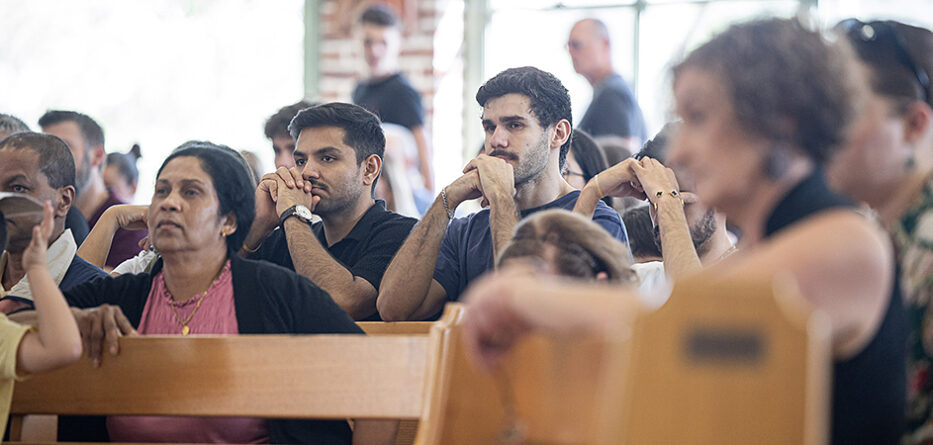When we worship God with others, such as at a Vespers Service, or during a Divine Liturgy, we must make sure we keep ourselves properly focused, making sure we do not turn our attention to others and what they are doing. God does not need our worship; when we go, it is for ourselves. Worship should be done out of love, for then, it will help us open ourselves up to God and God’s love for us. Thus, our worship provides us a means to commune with God, and through that communion, find ourselves being infused with all kinds of graces, as our bond with God helps us participate in the divine life itself. And, as it is meant to help us grow in our love for God, it will also lead us to love what God loves, including and especially those who are with us in our celebration. If we use the liturgy as an occasion to look at others and judge them, we will have done the opposite, as we will become more and more hostile, cutting ourselves over from others, and through such exclusion, we our love for God will also become less and less, leading us to have less and less connection with God and the graces those connections should bring to us.
Jesus told us we are to love God and our neighbor as ourselves; our liturgical practice, our worship, our reception of communion, is meant to help us grow in that love. Being judgmental breaks down that communion. What makes us do this? More often than not, it is due to some element of pride, for pride makes us think ourselves as being better than we are; once we view ourselves as superior to others, we think we can and should use ourselves as the example others should imitate, and in relation to how they differ from us, we judge and condemn them. It is this kind of pride which makes us think our liturgical preferences are the best and so everyone should embrace them, because if they do not, then there is something wrong with them as they must be seen as being irreverent in their liturgical practices.
The more we focus on others, and what we think they are doing wrong, the further we are from the humility and love we should have. While we should never be judgmental, this is especially true in regards the liturgical setting. If we see someone sitting when we think they should be standing or kneeling, let them be – we do not know them and their circumstances: they probably cannot stand for a long period of time. If we think a permissible liturgical practice, such as communion in the hand, is a disgrace and lacks proper reverence, our own disdain, and the judgment we make, is what is irreverent, not what they are doing.
To continue reading this article, click here.
Henry C. Antony Karlson III has done considerable amount of graduate work and study in philosophy, theology, inter-religious dialogue, and comparative theology. He has taught at both Georgetown University and the Catholic University of America. Henry is a Byzantine Catholic who not only is interested in Orthodox and Catholic theologians and philosophers, but also learning from people of every faith tradition.
With thanks to Patheos and Henry Karlson, where this article originally appeared.








